The okami of Hotel Kanyo is Noriko Abe, the daughter of the founder of the hotel. In Japan, it is very common for women to become the okami of traditional ryokan inn. More than just a director, an okami also plays the role of “lady of the house,” in charge of receiving the guests and setting the standard of hospitality. Hotel Kanyo still follows this tradition, even as it grew beyond the size of a ryokan into a huge facility that employs approximately two hundred people.
Minamisanriku Onsen
Hotel Kanyo
南三陸ホテル観洋 / Minamisanriku Hotel Kanyo
Coastal hot springs and seafood
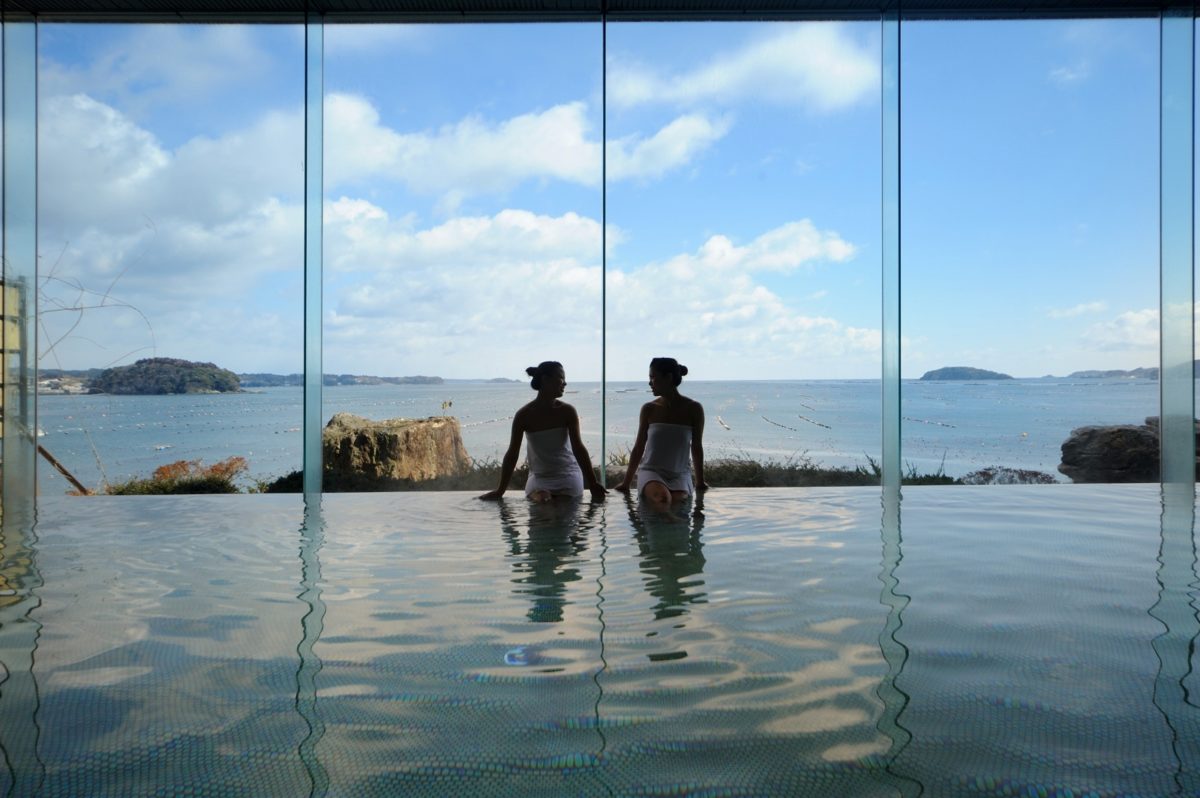
Photo by Minamisanriku Hotel Kanyo
Photo by Minamisanriku Hotel Kanyo

Photo by Minamisanriku Hotel Kanyo

Photo by Minamisanriku Hotel Kanyo
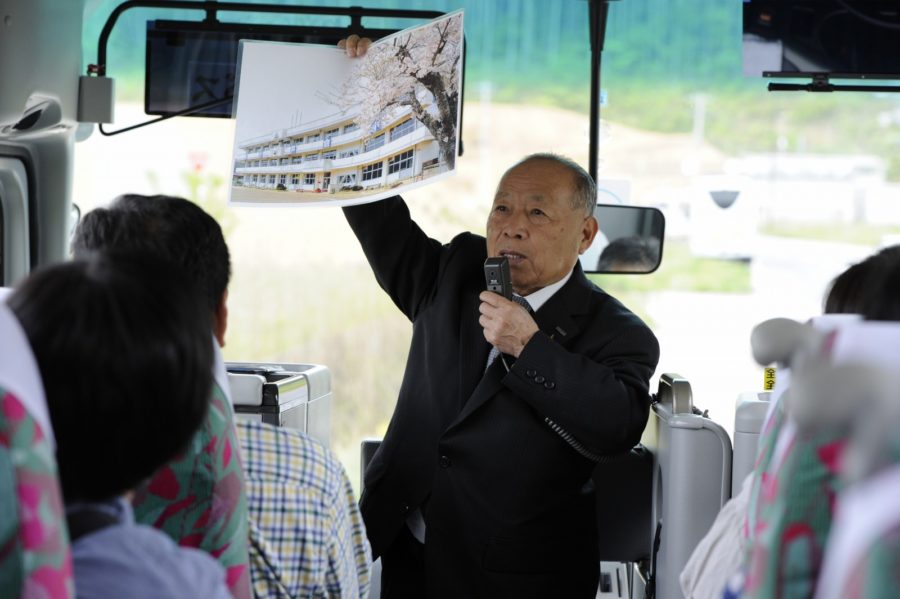
-
Minamisanriku Hotel Kanyo, located on the charming Shizugawa Bay, is more than just a hotel. It is a place to experience Japanese hospitality, enjoy great seafood, soak in an onsen hot spring overlooking the ocean, and learn more about local history and traditions through a tsunami kataribe storytelling tour.
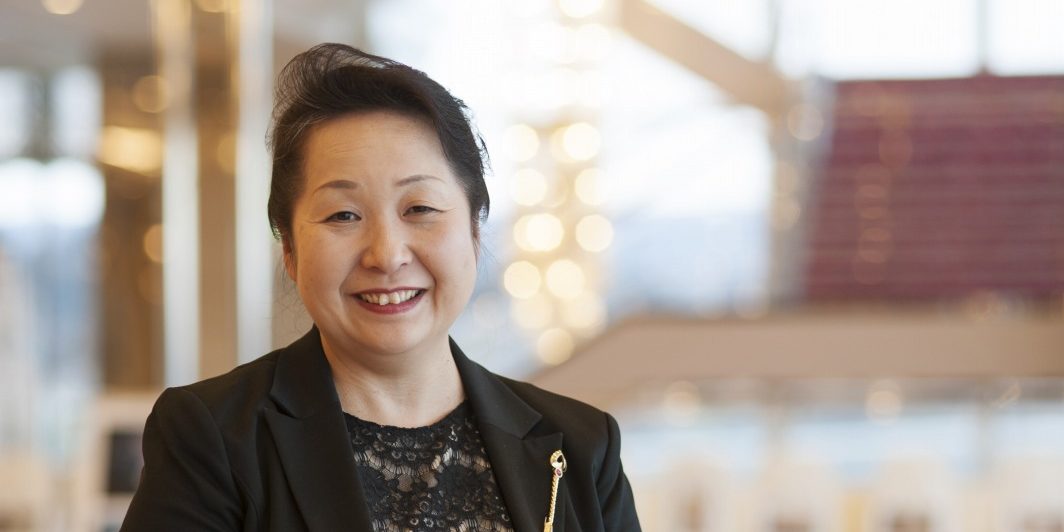

The coast of Miyagi is famous for its fish and seafood. One of the best dishes to try at Hotel Kanyo is the kirakiradon. Donburi—“don” for short— is a Japanese dish consisting of a bowl of rice topped with a special ingredient, usually sashimi or tempura. “Kirakira” indicates something that is glittery and shining. Noriko Abe was the one who decided to give this name to the dish. She recalls “Everybody knows the specialties of this area: abalone, salmon roe, and oysters. But what could we name a dish incorporating those ingredients? To increase the interest of tourists something different was necessary. The sun here shines, and the ocean sparkles, so ‘kirakiradon’ seemed like a good name.”
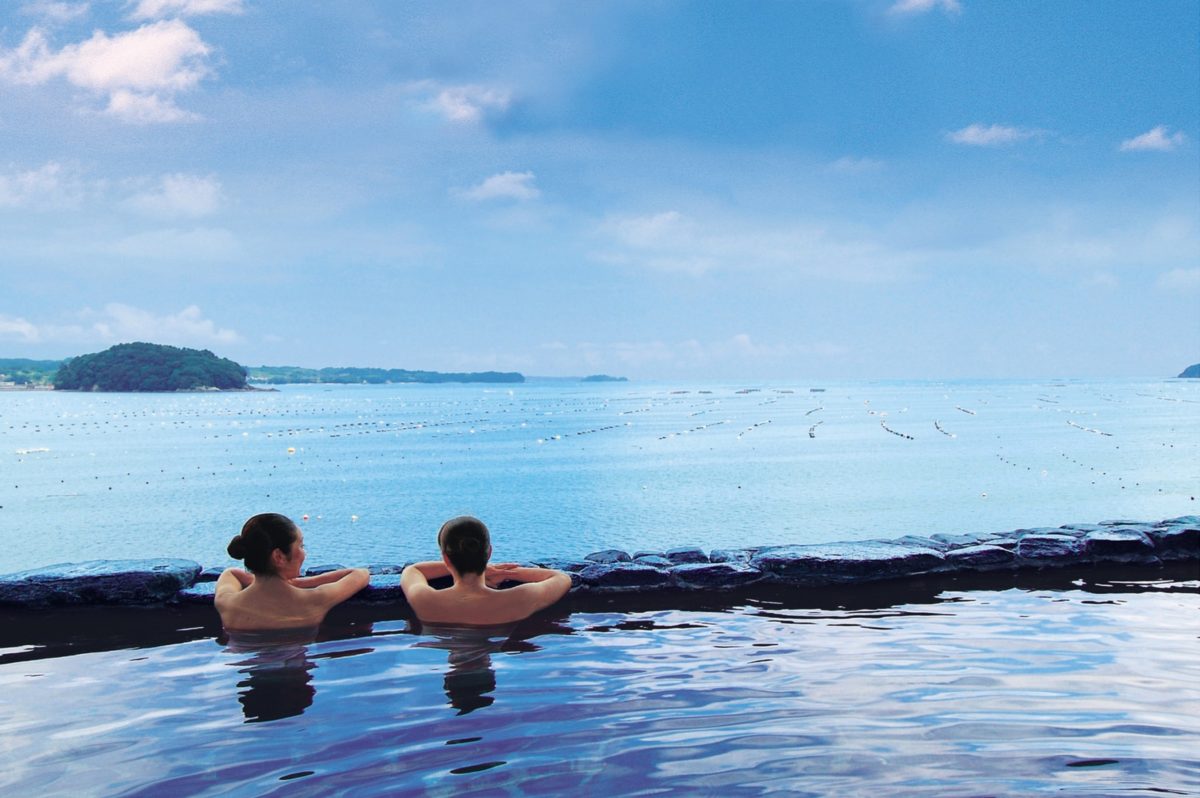
Kanyo is a waterfront hotel that lies on a cape facing the Pacific Ocean. The onsen baths are a highlight of the hotel, with a great view of the ocean from the outdoor baths. Each day, the hotel staff marks the time of the sunrise outside the entrance to the onsen so that the guests can experience it from the comfort of an outdoor bath, listening to the sound of the waves.
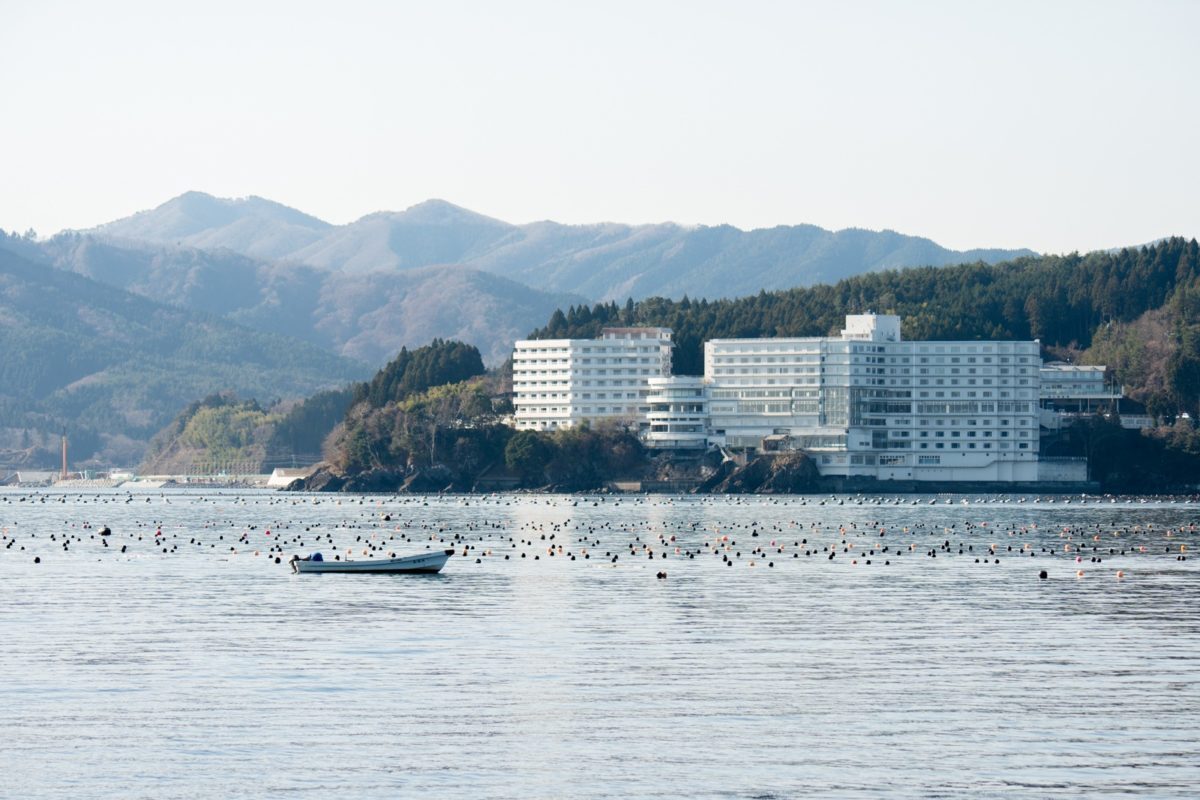
The position of the hotel was chosen after careful deliberation. Mindful of the Chile tsunami that hit this area in May of 1960, Mr. Abe searched for a spot that was beautiful but also safe in case of another major disaster. His foresight paid off when on March 11, 2011, the Great East Japan Earthquake hit the area. In the aftermath of the disaster, Hotel Kanyo played an important role in the recovery of the Minamisanriku community. The tsunami waves had reached just the first two floors of the building, inundating the hot spring bath area but sparing the upper guest floors. For this reason, for six months the hotel served as a temporary shelter for families who had lost everything. To continue to support the community, Noriko Abe partnered with the NPO Place to Grow, and every year since has hosted a Christmas party for more than four hundred current and former Minamisanriku residents. The event is largely staffed by volunteers, who come from as far away as Tokyo and the American Air Force Base in Misawa, Aomori. It is an important opportunity for the displaced community to be reunited, and the diverse volunteers bring an international influence, something that had hardly existed in pre-disaster Minamisanriku.

A few months after the disaster, it was staff from the hotel who organized the first kataribe storytelling tours. “Kataribe” comes from the Japanese word meaning “to tell” and is based on an ancient oral tradition of sharing the local stories of an area. This important oral history tradition has been revitalized and has become newly relevant in areas affected by the 2011 disaster. Since then, survivors have been sharing their stories with visitors to keep the memory of the disaster alive and inspire resilience in the community.
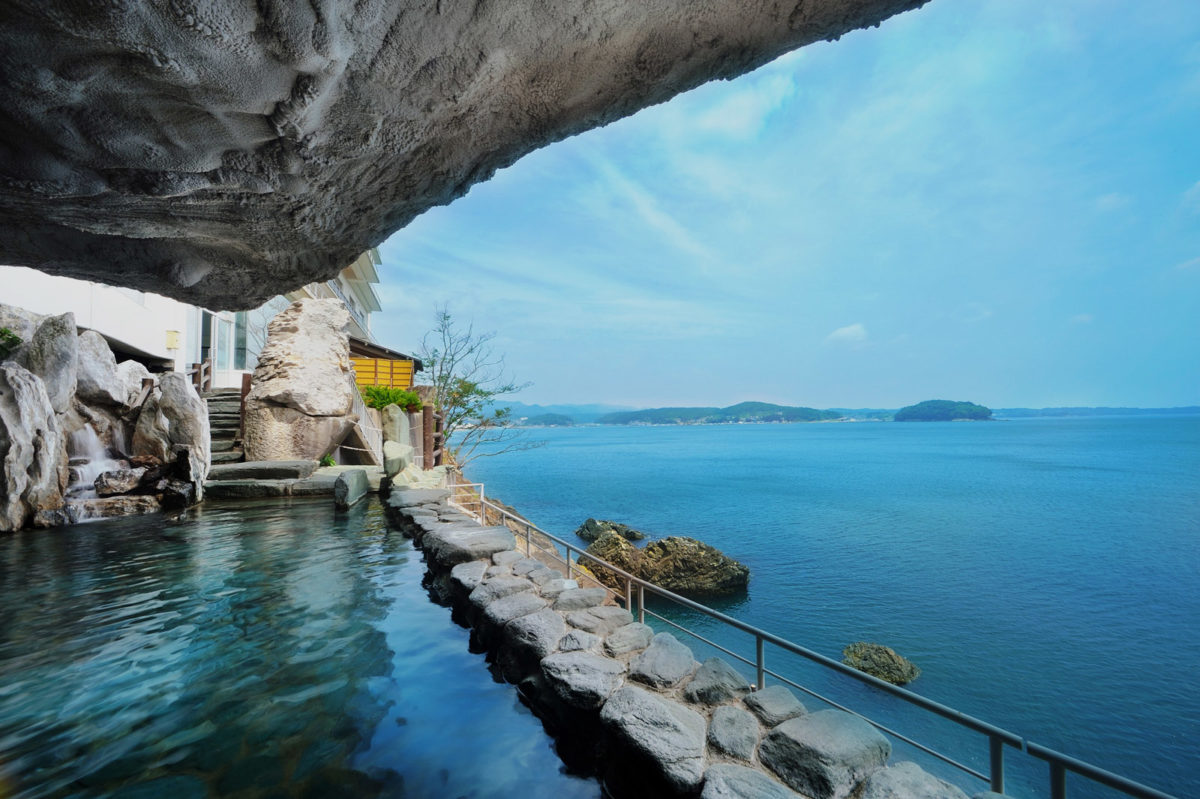
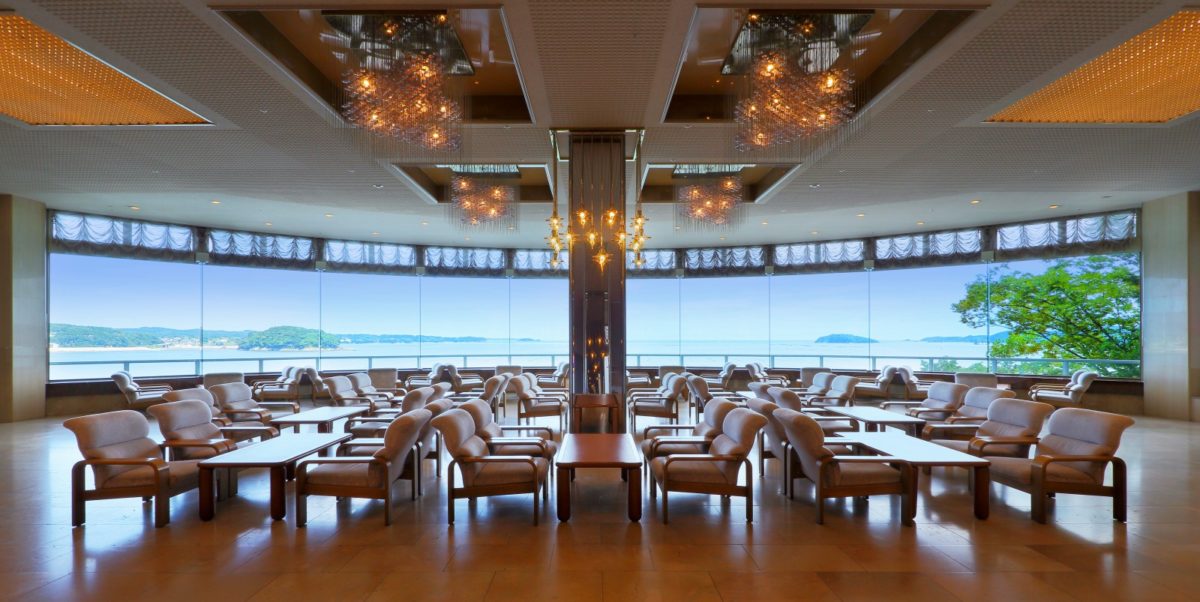
-
Last Update
February 20, 2019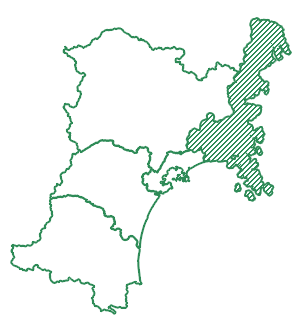
Area Sanriku Coast
Details
ADDRESS
99-17 Kurosaki, Shizugawa, Minamisanriku-cho, Motoyoshi-gun, Miyagi-ken 986-0766
ACCESS BY PUBLIC TRANSIT
Free shuttle bus from Rikuzen-Togura Station (Kesennuma Line BRT). Reservations required.
CREDIT CARDS
Accepted
LANGUAGES
Limited English
HANDICAP ACCESSIBLE
Yes
PHONE
0226-46-2442
OFFICIAL URL
ROOMS
7 Western-style, 237 Japanese-style
CAPACITY
1,300
ONSEN
Yes
VEGETARIAN/VEGAN
Yes
HALAL
Yes
FOREIGN-LANGUAGE MENU
Yes
NON-SMOKING
No
Visit Miyagi © 2018 All Rights Reserved.